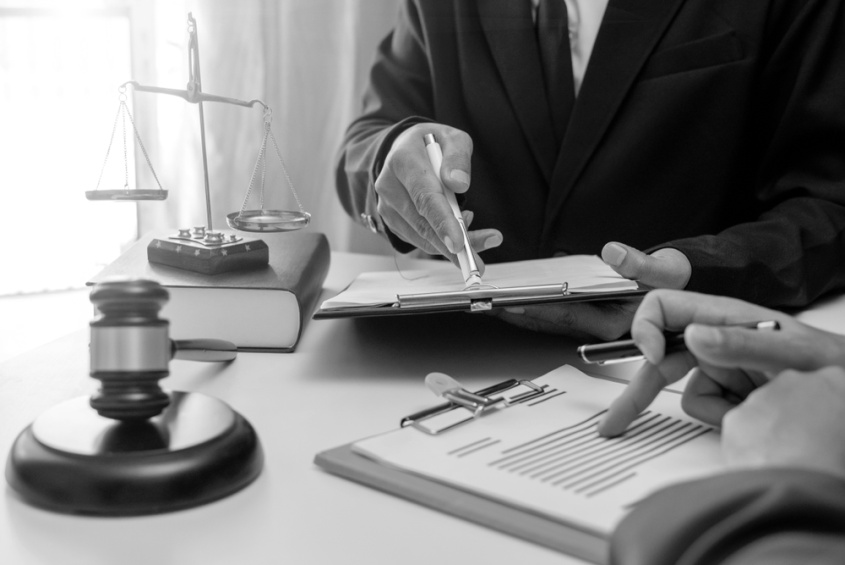
Losing a family member or loved one is difficult and unfortunately, we see the circumstances of loss even more challenging when there is a dispute involved. Estate disputes can arise for various reasons, and we’ve handled many. Whether you are fighting for your moral rights to inherit under a will, defending a family provision claim, or disputing the authenticity of a will, we can help. We will provide practical advice and negotiate a settlement on your behalf, keeping you out of the courtroom and away from expensive litigation costs wherever possible.
Family Provision Claims
If you have been unexpectedly left out of a will, or you have not received what you believe you are entitled to from a deceased estate, you may be eligible to make a claim to obtain a share or greater share.
Who can dispute a Will?
It varies from state to state, and we recommend you contact us to discuss your case as soon as possible. As a general guide (and depending on the circumstances) in New South Wales, you are eligible to make a claim if you:
- are the current or former wife, husband, or spouse of the deceased;
- were in a de facto relationship with the deceased at the time of their death;
- are a child of the deceased;
- are a child of someone in a domestic relationship with the deceased;
- are a person who is, or was at some time, dependent on the deceased:
- who is the grandchild of the deceased; or
- who is or was a member of the deceased’s household; or
- were in a close personal relationship with the deceased at the time of their death.
Making a Family Provision Claim
Strict time limits apply for making a claim, so we recommend contacting a lawyer as soon as possible to reduce complications and to protect your rights.
If you believe you have been excluded from a will, we can assist by contacting the executor and advising them of your intention to make a family provision claim. We can also seek orders from the court to prevent the distribution of any of the deceased’s assets until your claim has been resolved. This is an important step as it ensures that funds are not distributed and spent by beneficiaries before your claim has been finalised.
Once you have decided to make a claim, it is necessary to gather evidence. Your evidence will include details of your relationship with the deceased, your financial situation and needs, and the assets of the beneficiaries.
Once your evidence is ready, the executor will be contacted for settlement discussions. This means that your claim might settle without going to court. While this saves a lot of time and money, an early settlement usually means that the evidence may not be disclosed in full. If you are unaware of the assets in the estate, you may not know if you are getting what you should.
If the matter proceeds to court, it is usual practice for the parties to be ordered to attend a mediation. It is only if early settlement discussions and mediation fails that your matter will be heard in court.
How will the Court make a decision?
In determining whether to make orders in favour of a person contesting a will, the court will consider:
- your financial situation;
- the financial situation of other beneficiaries;
- your future needs;
- any mental or physical conditions or disabilities;
- any obligations the deceased owed to you.
Defending a Family Provision Claim
If you are the executor of an estate, it is your duty to uphold the will against any claims which are made against the estate. In doing so however, it may be wise to consider settling a claim which is likely to succeed in court, rather than depleting estate funds through excessive legal fees and court costs. We can provide advice and guidance in these circumstances.
An executor should refrain from distributing assets from the estate if a claim is made. If such a claim is successful, and there are insufficient assets remaining in the estate, the executor may be personally liable.
Other Estate Disputes
You may be able to challenge a will if you believe it is a forgery or if the person lacked the legal (mental) capacity to make the will. You can also challenge a will if you believe that undue influence was brought to bear upon the deceased or if there was fraud involved.
The interpretation of ambiguous terms in a will, mistakes, or a challenge regarding the appointment of an executor or administrator may also arise, involving complex legal issues.
Estate administration and litigation can involve many contentious issues and can become distressing as executors, administrators and family members struggle to cope with grief while defending their legal rights or the wishes of the deceased.
If you need assistance, please contact our estate dispute lawyers at [email protected] or call 02 7256 7050.

